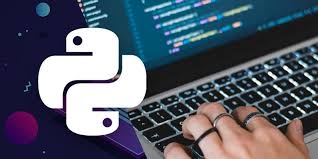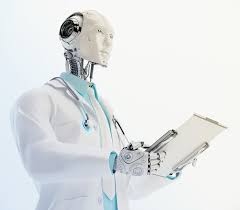Source: entrepreneur.com
In only a few weeks, the COVID-19 pandemic has completely disrupted our normal way of life. With many businesses shutting their doors or transitioning to a work-from-home system, adaptability to a constantly changing situation will prove key for the survival of organizations large and small. Despite everything that is going on, however, the pandemic is also spurring new innovations, particularly in the world of artificial intelligence. Here are several important ways AI is already making a difference in improving public health and safety as the world adapts to a new normal.
1. AI predicts the spread of disease
One of the biggest challenges with this coronavirus (and the COVID-19 disease it subsequenly causes) has been how quickly it can spread. While social-distancing measures and the closure of high-risk facilities are viewed as the best way to control the spread, many areas have been slow to enact such measures because they don’t have an accurate perception of their risk.
In Israel, however, an AI-powered survey system developed by the Weizmann Institute of Science aims to better predict outbreaks so authorities can proactively enact measures that will mitigate the virus’s spread. The system uses a questionnaire focusing on key issues like health symptoms and isolation practices, then matches responses with a location-based algorithm. AI analysis can then identify potential hotspots in advance, which can help local authorities enact measures that will slow down the virus.
2. AI helps support centers
With COVID-19 constantly dominating headlines, it should come as no surprise that hospitals and health organizations are getting more inquiries than ever from patients worried that they might have the coronavirus.
Virtual assistants have already alleviated the workloads of customer support professionals in other industries, and now, similar tools specifically designed to address questions related to COVID-19 are being introduced. These AI tools can be embedded directly into healthcare apps and websites.
One example of this is Hyro, a free COVID-19 virtual assistant that is being offered to healthcare organizations to help them manage the uptick in calls and questions. By answering frequently asked questions about the coronavirus, triaging symptoms and delivering information from verified sources like the WHO and CDC, such AI tools can help reduce the burden on healthcare workers who are already being stretched thin by pandemic conditions.
3. AI fights the spread of misinformation
An unfortunate issue that has popped up in the wake of the COVID-19 pandemic is the rapid spread of misinformation online. From downplaying the risks posed by the virus to false text messages warning of mandatory quarantine orders, this can further fuel panic during what is already a scary time.
Many social media platforms use human content moderators to check for harmful posts, but with more employees being required to work from home or stop working altogether, AI is becoming increasingly important in combating misinformation. Though the lack of human supervision means an increased risk for mistakes, it could also spur new improvements for these machine-learning tools.
As one example of this, The Verge’s Jacob Kastrenakes explains, “YouTube will rely more on AI to moderate videos during the coronavirus pandemic, since many of its human reviewers are being sent home to limit the spread of the virus. This means videos may be taken down from the site purely because they’re flagged by AI as potentially violating a policy, whereas the videos might normally get routed to a human reviewer to confirm that they should be taken down.”
4. AI identifies sick patients
As noted by the Guardian, one of the biggest challenges in containing the spread of COVID-19 is the fact that many patients experience symptoms most similar to a mild cold. Some are entirely asymptomatic. Because of this, many people who could spread the virus to others may continue to go out in public rather than self-quarantining.
While testing can be slow, AI is already stepping up to the challenge. As reported by The Next Web, several AI tools have already been developed to identify patients with COVID-19 and deliver treatment that keeps healthcare professionals safe.
In China, a computer-vision algorithm was developed to scan people’s temperatures in public locations and flag anyone with even a slight fever. Another AI algorithm helps doctors more accurately discern between coronavirus and typical pneumonia patients. In Washington State, robots have even been used to provide remote treatment and communication to keep the disease from spreading from patients to doctors.
The future surrounding the COVID-19 pandemic is rife with uncertainty. There is no telling how long social isolation measures and other precautions will need to remain in place to mitigate the spread of the disease, or what the overall impact of such actions will be.
While AI may not have all the answers, it is clear that continuing innovation in this field will help — and already is helping — to make the world a safer place during these troubling times. By helping slow the spread of the virus and improving conditions for healthcare workers, these tech developments could very well save lives now and in the future.


